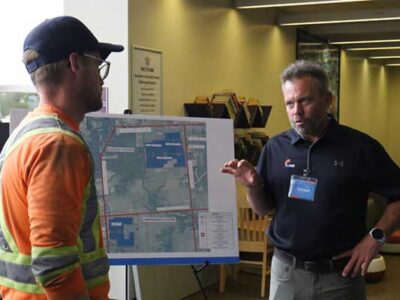Through p2p or community solar trading, households or businesses that generate solar power can sell green energy to their neighbors.
This effectively decentralizes energy trading by creating local markets.
Making it worthwhile to invest in the renewable energy technology to make this happen can be a challenge, however.
To help solve this, a US university has been developing a software system known as Canopus. The software has been designed to encourage small-scale investment in the technology.
Canopus will work by keeping communications local, enabling Blockchain servers to process a lot more transactions than before – potentially more than a million per second. This should enable homeowners and small businesses to sell renewable to consumers across the globe and to recoup their investments faster.
In Australia, interest in Blockchain is also growing. In the current energy market, owners of solar power systems can sell excess power they generate back to the grid. However, through a p2p trading system, they can sell renewable energy directly to their neighbours.
This decentralising and democratising of electricity can provide several advantages. These include reduced costs, the ability to create the terms of trade, and increased security of supply. Also, it enables owners of smaller solar systems to participate, and households that do not own solar panels to access affordable green power.
Existing Blockchain initiatives in Australia
At this stage Blockchain in the energy market is still a relatively new concept. However, it is already happening in various parts of Australia.
The Mooroolbark Community Mini Grid trial project for instance was launched in 2016. This program consists of 14 neighbouring houses each fitted with solar panels and a 10 kWh energy storage battery. This mini-grid is the first of its kind in Australia, and in July 2017 the Mooroolbark project jointly won the Clean Energy Council’s Innovation Award.
Also, in November last year the Federal Government gave a grant of over $8 million to trial blockchain-powered renewable energy and water systems in Fremantle.
The system consists of a solar plant, rooftop panels, a large energy storage battery, and an electric vehicle charging station. It will also form part of the Smart Cities and Suburbs program – a $50m initiative of the Australian Government.













Comments